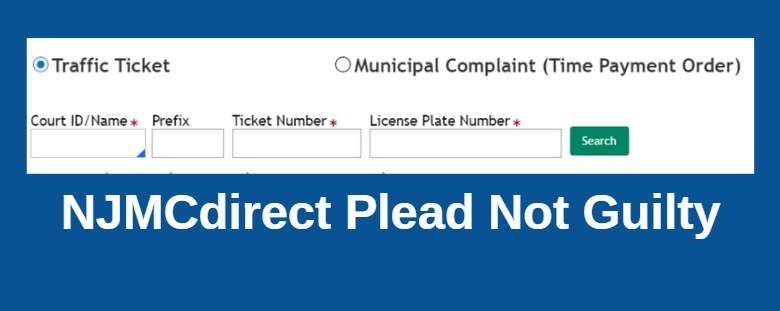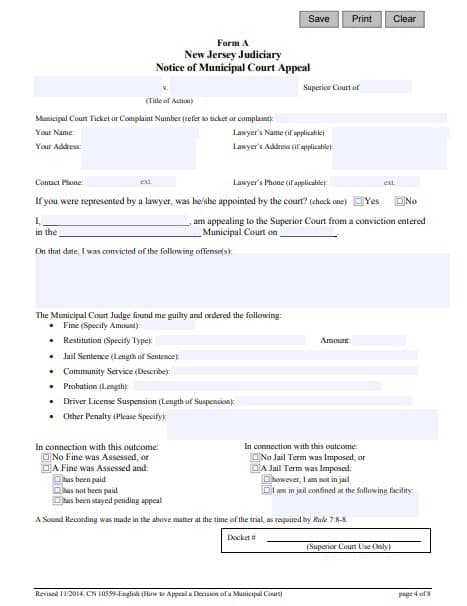If you’ve received a traffic violation in New Jersey, you may be considering how to respond. Pleading not guilty can be a viable option, depending on your circumstances. This guide provides the steps, potential defenses, and considerations involved in contesting a traffic violation in New Jersey.
Understanding Your Traffic Violation

Traffic violations in New Jersey can range from minor offenses, such as speeding or running a stop sign, to more serious charges like DUI or reckless driving. Each violation carries different penalties, which can include njmcdirect fines, points on your license, and even potential jail time for severe offenses.
Major Traffic Offenses:
These are more serious and may lead to significant penalties like high fines, license suspension, or even imprisonment. Examples include:
- Driving under the influence (DUI)
- Reckless driving
- Driving while license is suspended
- Speeding by 15 miles or more over the limit
- Driving without insurance
When to Defend Against a Traffic Violation
Common Traffic Offenses:
These offenses are typically minor and can be easier to challenge. Examples include:
- Not signaling a turn
- Improper passing
- Careless driving
- Speeding
- Using a no-passing zone
Even though these offenses are less severe, they can still accumulate points on a driver’s record and result in fines. For instance, improper passing could add four points, potentially increasing fines and risking license suspension.
Reasons to Choose Plead Not Guilty
Before deciding to plead not guilty, a driver should weigh several factors, such as:
- Disputed Facts: You believe you did not commit the violation as charged.
- Insufficient Evidence: The evidence against you is weak or flawed.
- Legal Defenses: There may be legal grounds that justify your actions, such as a medical emergency.
Step-by-Step Guide to Plead Not Guilty

- Review the Summons: Carefully read the ticket to understand the specific charge and the court date.
- Gather Evidence: Collect any evidence that supports your case, such as photos, witness statements, or dashcam footage.
- Consider Legal Counsel: While you can represent yourself, hiring an attorney with experience in traffic violations may improve your chances of a favorable outcome.
- File Your Plea: If you decide to plead not guilty, you must notify the court. This can typically be done by checking the “not guilty” box on the ticket and returning it to the appropriate court.
- Prepare for the Hearing: Gather all relevant evidence and practice your arguments. Understand the traffic laws related to your case.
The Court Hearing
During the hearing, you will have the opportunity to present your case before a judge. Here’s what to expect:
- Opening Statements: You may begin with a brief statement outlining your case.
- Presentation of Evidence: Present your evidence and any witnesses who can support your claims.
- Cross-Examination: The prosecutor may question you and your witnesses.
- Closing Arguments: Summarize your case and reiterate why you believe you should be found not guilty.
Possible Outcomes
- Case Dismissed: If the evidence is insufficient, the judge may dismiss the case.
- Not Guilty Verdict: If the judge finds in your favor, the charges will be dropped.
- Guilty Verdict: If found guilty, you will face the penalties associated with the violation.
Consequences of a Guilty Verdict
If you are found guilty, penalties may include:
- Fines
- Points on your driving record
- Increased insurance rates
- Possible license suspension for serious offenses
Appealing a Negative Verdict
Complete Required Documents:

- Notice of Appeal (Form A)
- Request for Transcript (Form B)
File the Documents:
- Submit Form A to the Municipal Court within 20 days after the verdict.
- Provide a copy of Form A to the prosecutor within five days.
- Complete Certification of Timely Filing (Form C) and send it to the Criminal Division Manager at the Superior Court within five days.
Remit Payment:
- A fee of $100 is required to file an appeal. Those who cannot pay may request a fee waiver.